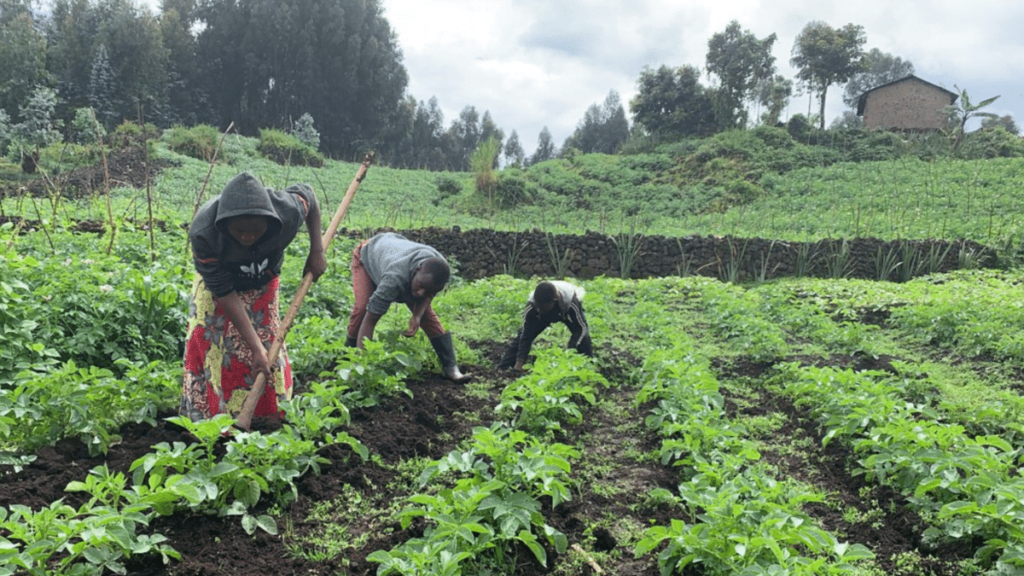Agribusiness environment and management is the application of managerial principles to the business of agriculture. It involves planning, organizing, directing, and controlling the agricultural processes and activities necessary for the production, processing, and distribution of agricultural products.
Table of Contents
Agribusiness environment and management encompasses a broad spectrum of activities within the agricultural value chain, including crop production, livestock farming, agribusiness financing, supply chain logistics, marketing, and agricultural policy-making. In a country like Nepal, where agriculture plays a pivotal role in the economy, agribusiness environment and management is crucial for enhancing productivity, ensuring food security, and driving rural development.
Definition of Agribusiness Environment and Management
Agribusiness environment and management can be defined as the practice of applying business management principles to agricultural enterprises to ensure their profitability, sustainability, and competitiveness. It involves managing the entire value chain—from the procurement of raw materials, production, and processing, to the marketing and distribution of the final products. Agribusiness environment and management aims to create an efficient and sustainable agricultural system that maximizes productivity while minimizing costs and environmental impacts.
In Nepal, agribusiness environment and management plays a key role in integrating smallholder farmers into the market economy, improving agricultural productivity, and addressing the challenges posed by climate change, market volatility, and rural poverty.
Scope of Agribusiness Management in Nepal
Agriculture is the backbone of Nepal’s economy, contributing around 25-30% to the national GDP and employing about 66% of the population. As the country transitions from subsistence farming to a more market-oriented agricultural system, agribusiness environment and management has become increasingly important. The scope of agribusiness environment and management in Nepal can be explored through several key areas:
- Agricultural Production Management: Agribusiness management assists farmers and agricultural enterprises in improving their production systems. This includes scheduling crop cycles, managing land resources, selecting high-yielding crop types, implementing sophisticated agricultural practices, and controlling labour and input costs. In Nepal, where agricultural techniques are mostly traditional, agribusiness management can boost productivity by implementing contemporary technology like mechanisation, precision agriculture, and enhanced irrigation systems. These improvements can increase yields while decreasing labour expenses, making agriculture more profitable.
- Supply Chain and Logistics Management: Effective agribusiness management entails establishing efficient supply chains that connect producers to markets. Many rural farmers in Nepal struggle to access markets due to poor infrastructure, a lack of transportation, and fragmented supply networks. Agribusiness management aims to streamline supply chains by enhancing logistics, storage facilities, transportation, and communication networks. Efficient supply chain management eliminates post-harvest losses, guarantees timely product delivery, and assists farmers in receiving fair market pricing for their crops.
- Agri-financing and Investment: In Nepal, farmers and agribusinesses face significant challenges in accessing funding. Agribusiness management includes financial planning as well as access to agricultural-specific loan, investment, and insurance services. In Nepal, where smallholder farmers dominate the agricultural landscape, agribusiness management may connect them with financial institutions that provide affordable loans, crop insurance, and risk management services. This can help farmers invest in improved inputs, machinery, and infrastructure, boosting productivity and resistance to economic shocks.

- Marketing and Agribusiness Development: Marketing agricultural products properly is critical to profitability. Agribusiness management focuses on creating marketing strategies that connect producers with consumers both domestically and internationally. In Nepal, the growing demand for organic and value-added products creates a unique opportunity for agribusinesses to target certain niche markets. Agribusiness management assists with product branding, packaging, and positioning in response to market demands. This involves using digital platforms like e-commerce and social media to reach a larger customer base.
- Agricultural Policy and Rural Development: Agribusiness management is responsible for more than just individual farms and businesses; it also oversees rural development and policy. In Nepal, agribusiness managers frequently work with government agencies and non-governmental organisations (NGOs) to execute policies promoting sustainable agriculture, food security, and rural development. Agribusiness management is critical in pushing for farmer-friendly legislation, encouraging the use of green technologies, and tackling issues such as land use, water management, and climate change.
- Entrepreneurship and Innovation in Agribusiness: Agribusiness management promotes innovation and entrepreneurship by enabling farmers and agricultural entrepreneurs to try out new business models, goods, and services. Agribusinesses in Nepal can benefit from developing trends including organic farming, agrotourism, agri-processing, and sustainable agriculture. These initiatives are supported by agribusiness management, which provides training, mentorship, and market and financial access. This not only generates new job prospects, but also stimulates rural economic growth.
Conclusion
The scope of agribusiness management in Nepal is large and evolving, with enormous potential to improve the agricultural sector. By implementing business principles, agribusiness management may improve output, profitability, and sustainability across the agricultural value chain. In a country where agriculture remains a significant element of the economy, effective agribusiness management may enhance economic growth, reduce rural poverty, and improve food security. Agribusiness management is poised to play a significant role in Nepal’s future agricultural growth through innovation in production, supply chain management, marketing, and policy formulation.
Frequently Asked Questions (FAQs)
What is environmental management system in business?
An EMS is a set of processes and practices that help an organisation reduce its environmental footprint while increasing its operational efficiency.
What is the management system in agriculture?
The agriculture management system collects and analyzes data from the farm and offers a planning feature.
What is subsistence and commercial farming?
Commercial farming is done for profit, whereas subsistence farming is done for the farmer’s own consumption and that of his or her family. Subsistence farming is mostly dependent on the monsoon. Subsistence farming is more reliant on animals and manpower.
Related Article

